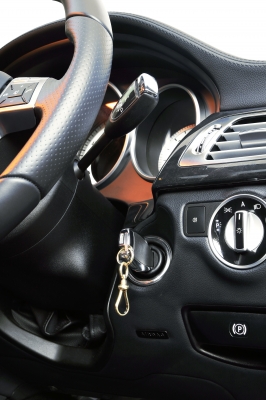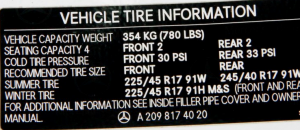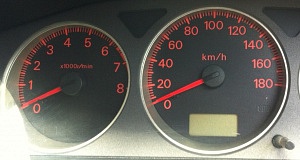5 Tips To Save On Fuel
| This is a guest post by Amaan-Ali Fazal, a BASC Mechanical Engineering (Thermofluids) student. Many thanks to Private Naph for getting Amaan to blog for us. Naph is a motor enthusiast and runs the best car blog in Africa (in my opinion). You can learn more about his blog here and follow him on Twitter. If you want to guest post on this blog, check out the guidelines here. |
Car makers are increasingly manufacturing vehicles that are highly fuel efficient, something we all appreciate, but over the last year or so, we’ve not felt this efficiency as fuel prices continue to rise, especially in Kenya, where we’re experiencing all time high fuel prices, despite the government “kindly” regulating fuel prices. While we can’t do much about the fuel prices, we can do several things to save on fuel.
The efficiency of your daily commute depends greatly on your driving habits and many other factors such as, the car model and make, driver responsibility and maintenance. Of course the simplest way to avoid fuel costs is to avoid driving and use alternatives such as a walking or a bicycle, all of which come with incredible health benefits, but again in Kenya, this may not be very practical as we don’t have well defined walking / cycling lanes. Car pooling is also another option that may not be very viable in Nairobi at the moment, but as the city gets more organised, you could consider it. The other is to buy a fuel efficient car, which is a post for another day. Assuming you’re stuck with the car you currently have, how do you save fuel costs?
1. Avoid Pricier “High Performance” Fuels and Fuel Right
Most cars are designed to burn regular unleaded gas with an octane rating of 87 (for more information on Octane rating, see Naph’s blog). A popular misconception perpetuated by fuel companies is that fuels with a higher octane rating such as V-power will increase the performance of the engine. This is completely false as the octane rating of the fuel is a measure of the fuels resistance to knock or premature ignition. Avoid filling yours vehicle up with a fuel of octane rating higher than minimum as this will cost you more without any increase in performance. If the vehicle needs a higher octane rating this requirement is noted in the owner’s manual and usually under the fuel gauge and by the gas tank.
In addition to using the right fuel, you must fill up the tank to the recommended volume; to the point where your fuel gauge in your dash reads “Full”. Filling up above the “Full” mark will cause the fuel to overflow as fuel expands when temperature changes, and may leak, damaging you car’s paint work, polluting the environment and of course wasting your money.
2. Check Tyre Pressure Frequently
It’s very important that your tyre pressure is at the optimum recommended level at all times. Under- inflating the tyres increases rolling resistance which means more fuel is wasted to overcome the resistance as well as premature wear. It’s recommended that you check tyre pressure on a cold day, as ambient temperature changes affect the properties of the air, and this could lead to a wrong reading of your fuel pressure. Inflating your tryes with nitrogen could help avoid this problem as nitrogen is less sensitive to temperature changes. The major tyre dealers (Pirelli, Good Year etc) will fill up for you at a small fee.
Always ensure that the gas station attendants fill to the recommended pressure by the manufacturer for peak performance. This is usually indicated on the B Pillar where the driver’s door rests and the back door hinges as below:
3. Service Your Car Regularly
Whether you drive a brand spanking new 2012 car or an older run around regular maintenance is a must. Many of us tend to delay servicing our vehicles, especially when the vehicle is running fine. However having it serviced could be the difference between a minor repair job and a serious and expensive fault down the road. It’s recommended that you have a professional service every 5,000 kilometers or which may consist of a simple oil change or could involve a full service check of the vehicle including safety checks. Oil change is the most important, if you don’t regularly change your oil, sludge may build up which makes the engine lose efficiency and could even cause it to break it down.
Although you should schedule to have your car serviced regularly, there are times when it’s particularly important. For example, if you’re about to embark on a long journey or if your car hasn’t been used for a while. Cars which have been sitting still for prolonged periods of time may have developed issues on account of the engine being left idle.
4. Drive At Moderate Speeds
Driving habits play a crucial role in saving fuel. Because aerodynamic drag is proportional to speed, the vehicle uses more energy to overcome drag at high speeds. This does not mean that lower speeds are automatically more efficient, at speeds of 50kmph the fuel consumption increases sharply. Maintinging a moderate speed is most efficient. Avoid sudden acceleration and braking, as energy is used to accelerate the vehicle, which is then lost during braking. It’s always interesting to watch drivers who accelerate in between speed bumps, then have to brake. It may display your vehicle’s power, but it’s equivalent to throwing money out through the window.
Maintain a moderate constant cruise speed on the highway. From experience, you gain very little time by over speeding and aggressive overtaking when driving long distance. For most vehicles, driving at below 2,000 Revs per Minute (RPM) is most efficient. The RPM indicator is on the extreme left on the dashboard, next to the speedometer.
5. Driving Posture!
Good driving habits not only include speed control but also driving posture. Many drivers get lazy while driving (especially now when traffic jams are legendary) and tend to rest their feet on the clutch. This results in less pressure on the clutch pads, causing them to slip and wear down, thus wasting fuel. Keeping this simple point in mind, you could save yourself some fuel as well as prolong the life of your clutch.
Other more complex methods for saving fuel include ECU remapping and or chipping. This is however a delicate procedure and should never be attempted in a DIY manner by untrained motor enthusiasts as the ECU is the brain of the car and therefore any small errors may cost you the engine. This is usually a rather expensive procedure, but it has many long-term benefits such as increased vehicle performance, decreased fuel consumption and decreased chance of engine knock.
In conclusion, good driving habits and proper vehicle maintenance will not only save you on fuel, but play a big role in extending vehicle life and reducing vehicle maintenance costs.
What have we missed?
Photo Credit: Blackstock




